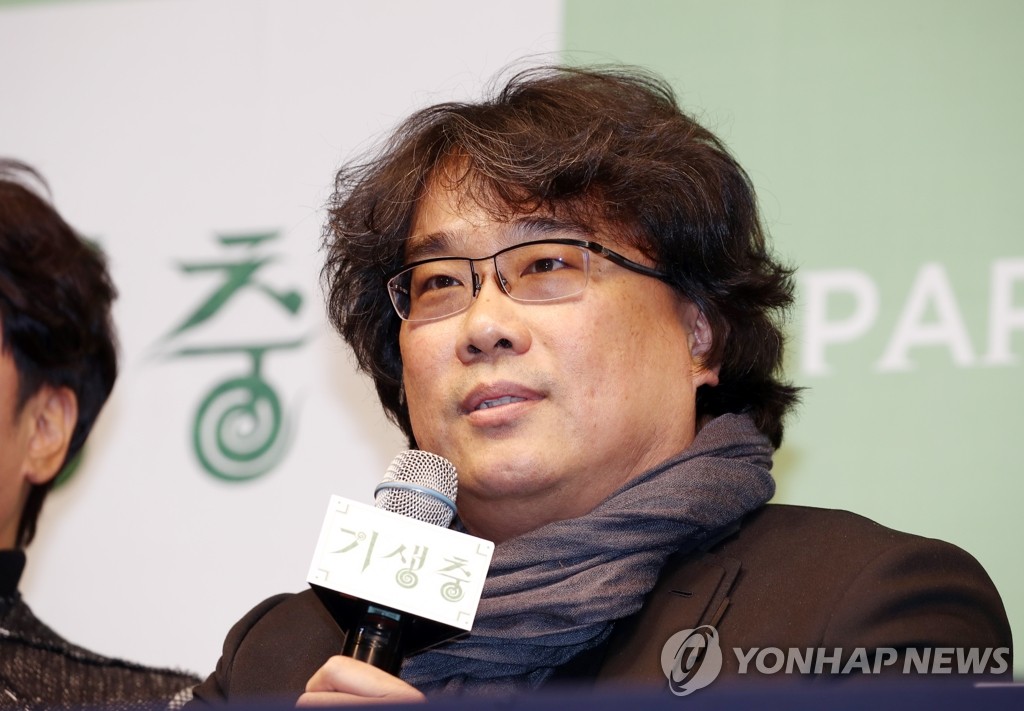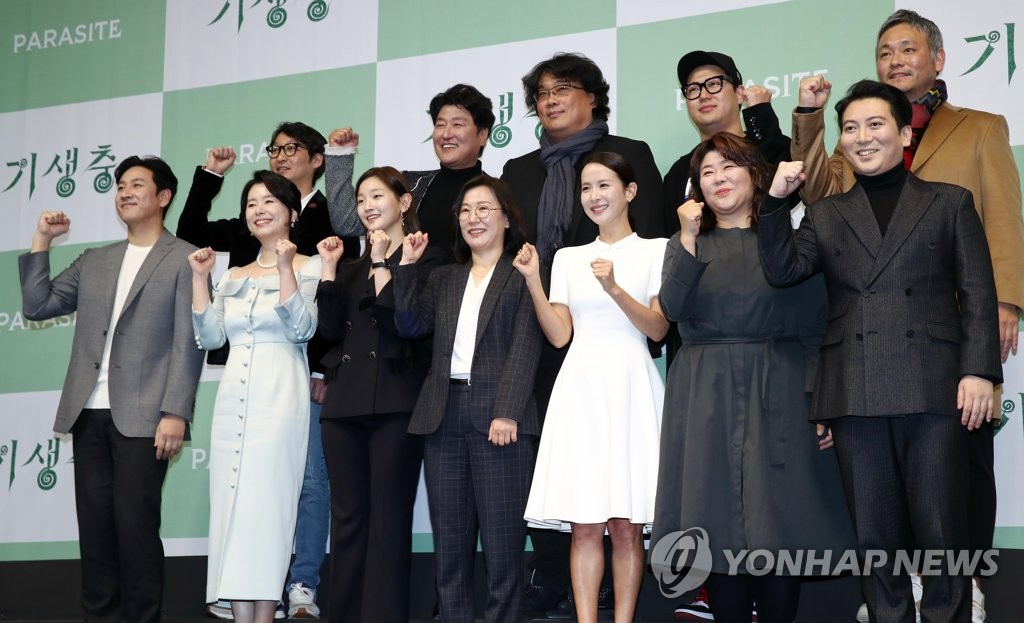- California Assembly OKs highest minimum wage in nation
- S. Korea unveils first graphic cigarette warnings
- US joins with South Korea, Japan in bid to deter North Korea
- LPGA golfer Chun In-gee finally back in action
- S. Korea won’t be top seed in final World Cup qualification round
- US men’s soccer misses 2nd straight Olympics
- US back on track in qualifying with 4-0 win over Guatemala
- High-intensity workout injuries spawn cottage industry
- CDC expands range of Zika mosquitoes into parts of Northeast
- Who knew? ‘The Walking Dead’ is helping families connect
Bong says monthslong Oscar campaign driven by passion, dedication
South Korean auteur Bong Joon-ho of “Parasite” said Wednesday that the monthslong Oscar campaign in the United States was driven by the passion and dedication of his staff and cast.
The black comedy thriller about two extreme families won four Oscar titles at the Academy Awards last week, becoming the first non-English language film to capture best picture in its 92-year history.
Bong led the film’s awards season campaign, which started in August and ran through the Oscars ceremony on Feb. 9, along with its U.S. distributor Neon and its production houses Barunson E&A and CJ ENM.


“All films did their best to win an Oscar,” Bong said in a press conference in Seoul. “But our team has to fight a guerrilla war with less budget, compared with big-name studios and Netflix.”
He said he and actor Song Kang-ho, who played the father of a poor family in “Parasite,” did more than 600 media interviews and held special screening sessions with film buffs more than 100 times.
Online viral marketing was also part of the team’s limited budget strategy, he added.
“In the beginning, I didn’t understand why all these huge film studios and filmmakers spent massive money and time in the campaign,” he said. “But during the period, I felt that this is the decadeslong process of the U.S. film industry to sympathize with each other and share their cinematic ideas.”
He said he was so happy that his team received the biggest reward for the dedication at the Oscars and that, especially, his film got favorable reviews from audiences across the world.
“My film is partly a comedy, but it also has bitterness and discomfort due to the class disparity between the rich and the poor,” the director said. “I’m so delighted that movie fans in South Korea, Europe and North America liked my film this much, regardless of the awards.”
The movie has attracted more than 10 million viewers in South Korean alone, while it raked in US$44.3 million in the U.S. to become the fifth-highest grossing foreign-language film stateside.
During the promotional tour, he said many cineasts in the U.S. were curious about the South Korean film industry that has produced such creative stories and movies in recent decades.
On the international stage, South Korean movies and filmmakers like Park Chan-wook and Lee Chang-dong have stood out and collected a number of prizes from renowned film festivals overseas.
Director Park was awarded the Grand Prix, the second-highest honor at the Cannes International Film Festival, for his 2003 thriller “Oldboy” and the Jury Prize for “Thirst” (2009), while Lee took home Cannes’ best screenplay award for “Poetry” (2010).
“I think there were good interactions, or so-called dynamic clashes, between the commercial and the independence film industries in Korea in the early 2000s,” said Bong, who made his directorial debut with “Barking Dogs Never Bite” in 2000.
But the dynamics seem to have diminished to some extent in recent years as the South Korean film industry has become less willing to take risks, he noted.
“Now we have to think about the way to revive the vital energy, trying not to be scared of taking risks but challenging them,” he said. “Looking into recent quality indie films, however, I think many talents are ready to bloom. I expect there will be dynamic clashes in our film industry in the near future.”
brk@yna.co.kr












![일본 사도광산 [서경덕 교수 제공. 재판매 및 DB 금지]](http://www.koreatimesus.com/wp-content/uploads/2024/07/PYH2024072610800050400_P4-copy-120x134.jpg)


